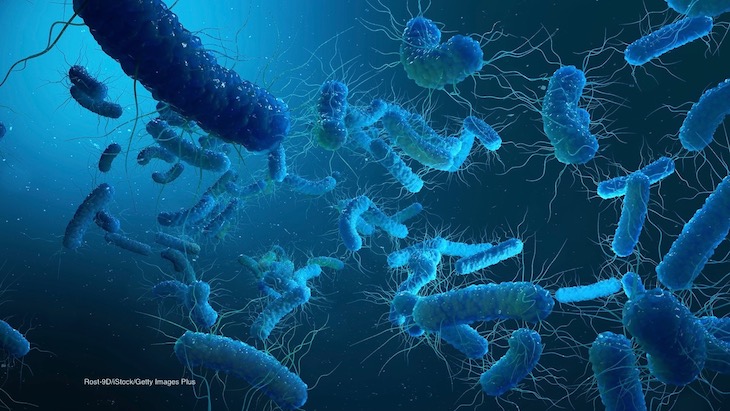If you contract an E. coli infection, the symptoms are unmistakeable. Because of the toxins the pathogen produces, and how it attacks the body, patients know they are really ill.

All pathogens are assigned a “multiplier” by public health officials. The number is chosen based on how many people actually go to a doctor when they contract food poisoning. The multiplier for Salmonella infections is 29, because not many people need to see a physician when they are ill. The multiplier for E. coli infections is 26, which is a surprisingly high number, given the severity of the symptoms.
The main symptoms of E. coli infections are:
-
- Very severe and painful abdominal cramps
- Bloody and watery diarrhea
- Mild fever
Those symptoms usually begin three to four days after exposure to the pathogen, and can last for days. Antibiotics are not prescribed for this infection, since those drugs can increase the risk that the patient will develop hemolytic uremic syndrome (HUS), a type of kidney failure.
There are many types of E. coli bacteria that do not cause any symptoms at all. The E. coli that cause such serious illnesses are called STEC: Shiga toxin-producing E. coli. As the bacteria grow and replicate, they produce that toxin that attacks the red blood cells. The blood cells are destroyed. They travel to the kidneys, where the misshapen cells clog small tubes and eventually destroy that organ, leading to kidney failure. The bacteria themselves attack the lining of the intestines, which causes the bloody diarrhea.
There are seven strains of E. coli that are classified as STEC. E. coli O157:H7 is the most common and is considered an adulterant in food. There are six other main strains that the government has identified that are also classified as adulterants in food. They are O26, O11, O103, O121, O45, and O145.
STEC infections are typically associated with ground beef, unpasteurized apple cider, and raw milk, although these outbreaks have been linked to leafy greens, nut butters, alfalfa sprouts, flour, chicken salad, raw nuts, and prepackaged cookie dough.
Ruminant animals, such as cows, sheep, and goats, can carry these pathogens in their intestines without getting sick. They shed the bacteria in their feces. It can then get onto the animal’s hide and contaminate meat during processing. The bacteria can also get into milk because the anus is close to the udders on cows. E. coli O157:H7 outbreaks have been linked to raw milk, which has not been pasteurized to destroy pathogens.
If anyone in your family is ill with these symptoms, it’s important to see a doctor immediately. Although there is no direct treatment, patients will often be given fluids to help prevent dehydration.
The best ways to protect yourself against this infection is to avoid eating undercooked ground beef, avoid raw milk and raw milk products, and avoid unpasteurized juices and nuts. It’s also a good idea to pay attention to food recalls and outbreak notices.




